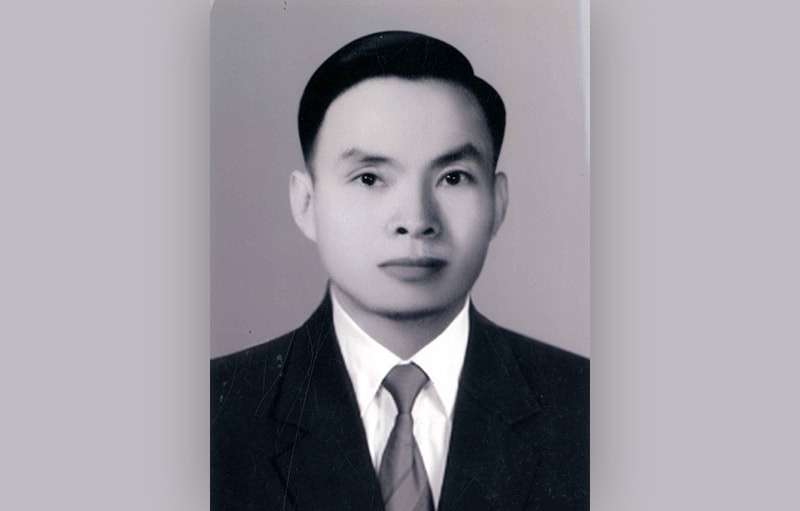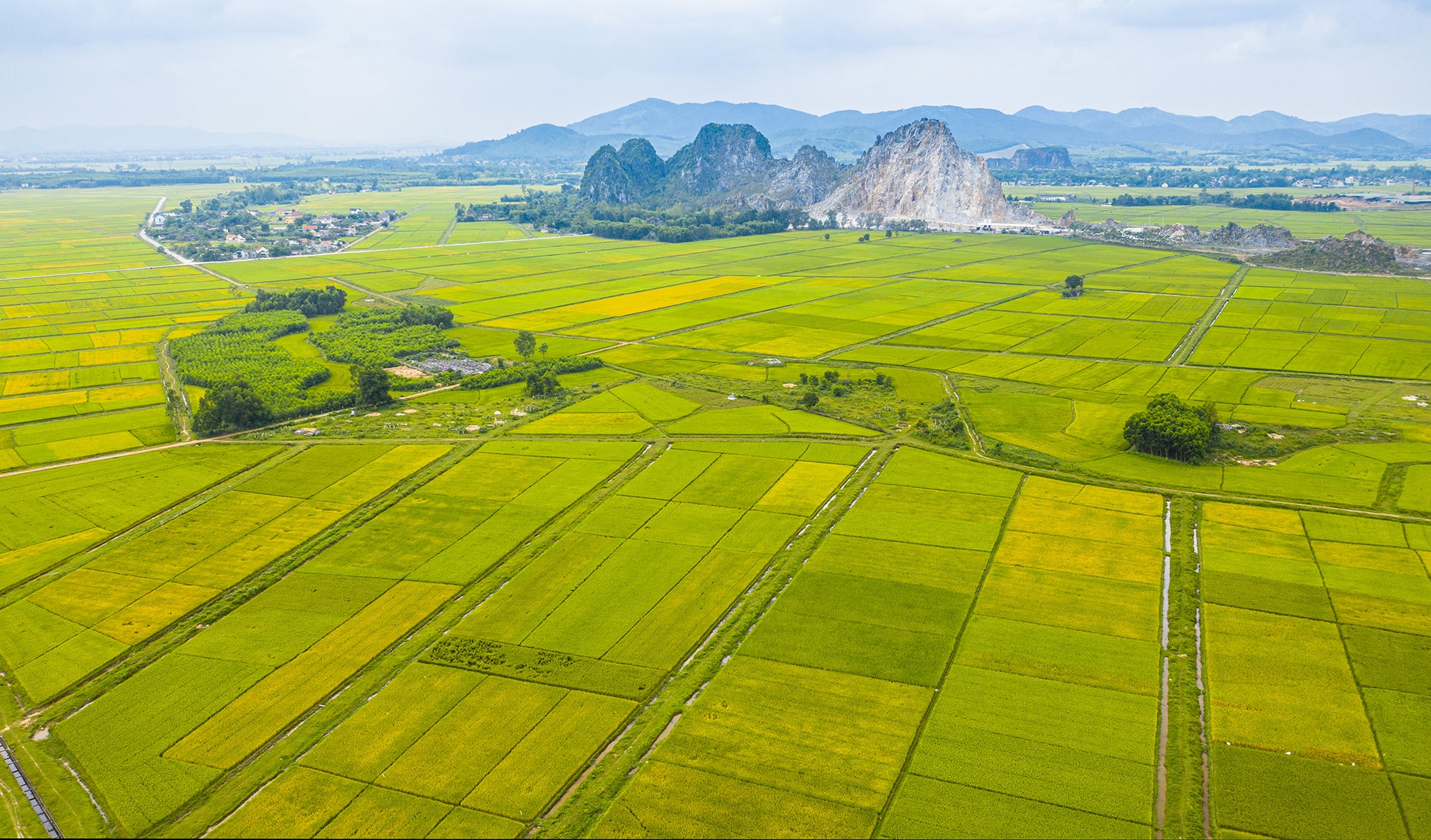Nguyen Duc Thieng: An honest, exemplary communist with a sharp political pen
(Baonghean.vn) - Comrade Nguyen Duc Thieng has more than half a century of working in the Party and diplomacy. During his revolutionary career, especially from 1972 to 1986, when he was appointed to the position of Standing Committee and then Vice Chairman of the Commission for Investigation of War Crimes of the US Imperialists in Vietnam and the Commission for Investigation of War Crimes of Aggression of China, he wrote hundreds of sharp political articles. His articles have contributed to making our people and international friends understand the plots and crimes of the invading enemy, upholding the justice of Vietnam.
Nguyen Duc Thieng was born on January 15, 1922 in a peasant family with a tradition of patriotism in Bac Thanh commune, Yen Thanh. From 1936 to 1941, he actively participated in the Tan Tien Revolutionary Organization of the Party, which operated openly, and then the Anti-Imperialist Front in his hometown. In early 1941, Nguyen Duc Thieng was suspected by the enemy and detained for 1 month in Yen Thanh prison. The enemy tried every way to entice and interrogate him, but could not find any evidence to force them to release Nguyen Duc Thieng and Mr. Phan The Nghien.
 |
| Comrade Nguyen Duc Thieng. |
In mid-1945, he was contacted by comrade Chu Van Bien and assigned the responsibility of building a secret Viet Minh organization in Tan Thanh commune (now the three communes of Bac Thanh, Trung Thanh, Nam Thanh) and directly participating in the uprising to seize power in the locality. He was the Chairman of Viet Minh and the first Vice Chairman of the commune committee of Tan Thanh commune on the afternoon of August 25, 1945.
In November 1945, he was admitted to the Party and assigned the responsibility of developing the Party locally and was added to the Executive Committee of Yen Thanh District Party Committee. Immediately after that, he went to Nguyen Duc family temple to organize a conference to establish the first Party cell of Tan Thanh commune, with him as Secretary. From those first red seeds, in the years 1948 - 1955, this cell was renamed Ho My Xuyen cell, the number of Party members at times reached over 500 comrades. In the same year, he was elected as an Executive Committee member of Nghe An Provincial Farmers' Association. In 1946, he joined the Standing Committee of Yen Thanh District Party Committee and was elected Chairman of the Lien Viet Front of Yen Thanh District.
In 1948, the Yen Thanh District Party Congress elected him as Secretary of the Yen Thanh District Party Committee. In his new position, he and the Party Executive Committee led the resistance war, promoting all aspects of activities to build Yen Thanh into a solid rear base providing manpower and resources for the frontline. Also in 1948, he was elected as a member of the Nghe An Provincial Party Executive Committee. From early 1950 to early 1952, he was appointed to the position of Head of the Nghe An Provincial Party Committee's Organization Committee. In mid-1952, he was appointed by the Inter-Zone 4 Party Committee to be the permanent member of the Propaganda Department of the Mass Mobilization Committee for Rent Reduction of Inter-Zone IV. From 1953 to 1955, he was sent abroad for training. In early 1955, he was appointed as the First Secretary of the Charge d'Affaires of the Vietnamese Embassy and the Party Cell Secretary in Hungary. In 1961, he was assigned to work as Deputy Director of the Organization Department and Deputy Director of the Soviet Union and Eastern Europe Department - Ministry of Foreign Affairs. In 1963, he was appointed Director of the West Asia and Africa Department.
From 1964 to 1966, he was transferred to work as Counselor of the Vietnamese Embassy in the German Democratic Republic. From 1966 to May 1972, he was transferred to work as Vietnamese Ambassador to Guinea and several other countries. From July 1969 to July 1972, he was Vietnamese Ambassador to Algeria and Senegal. During many years of foreign affairs work, through many positions in many European and African countries, he demonstrated a high sense of responsibility for his work, attended many international conferences, and always sought to make international friends understand the Vietnamese people's resistance war against the US to save the country, and unite to support Vietnam.
From mid-1972 until his retirement in 1986, Nguyen Duc Thieng was appointed to hold the positions of Standing Committee, then Vice Chairman of the Commission for Investigation of War Crimes of the US Imperialists in Vietnam and the Commission for Investigation of War Crimes of Chinese Aggression. From 1990, he was a member of the Commission for Investigation of Toxic Chemicals.
With a sharp mind, a quick and straightforward style, through many forums, especially with sharp journalistic weapons, every month, every quarter, sometimes every week, every day, Nguyen Duc Thieng's sharp political articles appear regularly on the news of Nhan Dan, Quan Doi Nhan Dan, Vietnam News Agency, on Voice of Vietnam radio, on major newspapers from central to local. Besides political articles, he also wrote about the changes in the lands plowed by bombs and bullets such as: Maintaining the Fatherland's border; Vitality of Ha Tuyen; New life in Tay Son; Yen Thanh rice (Nhan Dan newspaper)...
 |
| Rice fields in Yen Thanh district. Photo: Nguyen Sach |
After retirement, he also participated in collecting documents to provide to the editorial board of Yen Thanh district history and directly wrote the history of Bac Thanh commune. He considered that as the most practical contribution to his homeland.
Comrade Nguyen Duc Thieng passed away after a heart attack on July 27, 1998, at that time he was a member of the US Agent Orange Investigation Committee in Vietnam. After more than half a century of revolutionary activities, from a patriotic rural intellectual to the first Party cell secretary of Tan Thanh commune, then the Yen Thanh District Party Committee Secretary, Head of the Nghe An Provincial Party Committee's Organization Board, then a diplomat, and Vice Chairman of a state committee, in every position, comrade Nguyen Duc Thieng "maintained his political will and revolutionary ethics, was a pioneer and exemplary model in all assigned tasks, constantly studied to improve his political will, was straightforward, sincere, and upheld the revolutionary ethics of an excellent cadre" (excerpt from the eulogy of the Ministry of Labor, War Invalids and Social Affairs read at the funeral of comrade Nguyen Duc Thieng).
With his outstanding contributions in many fields, comrade Nguyen Duc Thieng was awarded by the Party and the State with the Third Class Independence Medal, the Second Class Resistance Medal against France, the First Class Resistance Medal against America for National Salvation; Medal for Diplomacy, Medal for Labor - War Invalids and Social Affairs, 50-year Party membership badge... and many other noble awards.

